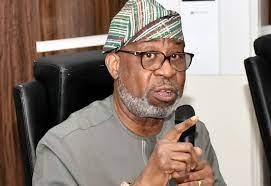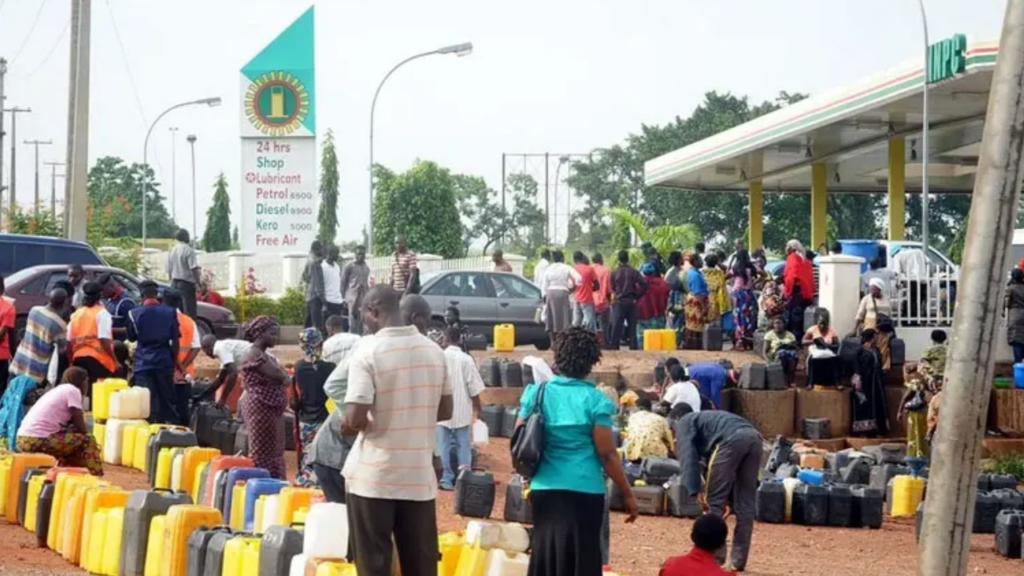Solid Minerals
Nigeria’s 15 Million Ton Annual Steel Production Target Doubtful

ABUJA – The federal government warned yesterday that the country might be unable to achieve the 15 million tonnes per annum capacity of local steel production set for the year 2020 in the nation’s drive to revamp the iron and steel industry.
The Minister of Mines and Steel Development, Mr. Musa Sada, sounded the warning in Lagos, while addressing stakeholders in the sector at a one-day forum organised by the Federal Ministry of Industry, Trade and Investment in collaboration with the Federal Ministry of Mines and Steel Development.
Sada explained that if activities in the iron and steel sector continued as it was currently being operated, it would certainly be unable to attain the 15 million tonnes per year target of locally manufactured steel, set for seven years from now.
Loathing the fact that Nigeria, at the moment, imports about 17 million tonnes of steel yearly and produces only 2.5 million tonnes locally, the Mines and Steel Minister stressed that the situation was more wasteful because the country possesses over two billion tonnes of iron ore deposit, as well as over one trillion tonnes deposits of coal, a major ingredient in the production of steel.
Meanwhile, the Minister of Industry, Trade and Investment, Mr. Olusegun Aganga, at the same forum, stated that the nation was aiming at ending the importation of petroleum products into the country by the year 2017.
Aganga noted that Nigeria, riding on the $16 billion investment commitment already made in the local petrochemical industry by both indigenous and foreign investors, was targeting the termination of importation of refined petroleum products into the country.
“With the $16 billion investment commitment in the petrochemicals industry of which $9 billion is from a local investor who has kicked off the setting up of an integrated petrochemical manufacturing plant, we are on our way to ending petroleum products importation by 2017,” he said.
Aganga added that the $9 billion integrated petrochemical plant being undertaken by the Nigerian investor requires the services of between 5,000 and 8,000 indigenous engineers, underscoring the need for rapid development of human capital within the country in pursuit of the industrial revolution objectives of the federal government.
He stated that in order to begin to address the serious human capital challenges facing the country, which would be further exposed as the industrialisation drive progresses, Industrial Training Fund (ITF), a parastatal under the Federal Ministry of Industry Trade and Investment in collaboration with the United Nations Industrial Development Organisation (UNIDO), was conducting the first ever National Skills Gap Survey (NSGS) with the result set to be released between March and April 2014.
Stressing the importance of mines and steel to the advancement of the nation’s economy, Sada said steel was expected to remain the world’s most important engineering material for some time to come.
He pointed out that backward integration is very important in steel production, saying that over two billion tonnes of iron ore deposits occur in various locations across the country while one trillion tonnes of coal resources occur in 13 states of the federation creating enormous potentials for Nigeria’s steel and metal industry with ever growing domestic market and access to neighbouring West African markets.
Sada said the Nigerian iron and steel sub-sector involved privately owned steel plants that use 100 percent scrap metals as raw materials. “There are several private foundry companies operating at low capacity, cold rolled steel mills that depends on the use of imported hot rolled coils as feed stock showing the huge gap that exist in the nation’s steel industry,” he said. He highlighted the major problems facing the steel industry as including Nigeria’s annual importation of about 17 million tonnes of assorted steel and allied products; local steel production being only from 100 per cent melting of scrap metals and also added that the issue of quality was a major concern.
– THIS DAY
Solid Minerals
FG Fingers Foreigners Sponsoring Banditry For Illegal Mining

The Nigerian Government has threatened to come down heavily on foreigners sponsoring bandictory as a way of sustaining illegal mining activities in parts of the country.
The warning was handed down in Abuja by Minister, Solid Minerals Development, Dr Oladele Alake, while receiving a delegation of the Nigeria-China Chamber of Mines led by its National President, Dr. Olugbenga Ajala.
Details of these were contained in a statement released by Head, Press & PR, Ministry of Solid Minerals Development, Alaba Balogun over the weekend.
The statement cited, Dr Alake, thus, “The government will come down firmly on these unscrupulous foreign operators sponsoring banditry to perpetrate illegal mining: let me use this medium to appeal through you to tell those sponsors to desist or face the full wrath of the law.”
According to Dr Alake, the Ministry is committed to establishing a multi-agency task force that will end the activities of illegal miners and their collaborators.
The Minster made it clear that the FG had given illegal miners a 30-day-ultimatum to legitimise their businesses, quit Nigeria or incur the wrath of the law.
According to him, this will help “to streamline and structure the Small-Scale Artisanal Miners for maximum yield to the Federal Government.”
The delegation paid a courtesy call on the Minsiter at the Ministry’s headquarters in Abuja.
Energy
Fuel Scarcity: Govt Yet to Increase Pump Prices – NMDPRA

By Edozie Obasi-Eze
Amidst heightening uncertainties in the domestic petroleum products market characterised by scarcity and irregular pricing, the Nigerian Midstream and Downstream Petroleum Regulatory Authority (NMDPRA) has declared that there’s no intention to review pump prices upwards.
This was contained in an advisory issued by General Manager, Corporate Communications, NMDPRA, Kimchi Apollo.
He stated that the Nigerian National Petroleum Corporation Limited (NNPCL) had imported PMS with current stock levels sufficient for 34 days.
In an attempt to address panic buying and speculations which have seen price of Premium Motor Spirit (PMS) oscillate between N180-N250 in the Lagos area, Apollo assured that there was enough quantity of the product in the country already.
He said, “Consequently, marketers and the general public are advised to avoid panic buying, diversion of products and hoarding.
“In keeping with the Authority’s responsibilities as outlined in the Petroleum Industry Act (PIA), the Authority assures the public that it would continue to monitor the supply and distribution of petroleum products nationwide, especially during this holiday season.”
Solid Minerals
DIVERSIFICATION: RMAFC inspects mining activities in Ondo
The Revenue Mobilisation Allocation and Fiscal Commission (RMAFC) says it is verifying and reconciling revenue collections in the Solid Minerals Sector of the economy.
The Federal Commissioner, RMAFC, Chief Tokunbo Ajasin, stated this at a strategic meeting on the commission’s 2022 nationwide monitoring of revenue collections of the Nigerian mining sector in Akure on Monday at the state Ministry of Finance Conference Hall.
This is contained in a statement by Mr Banjo Egunjobi, the Head of Media Unit of the ministry.
Read also>>>Darkness Envelopes Nigeria as National Grid Collapses For 7th time in 2022
Ajasin said 25 enterprises exported minerals in 2019 with no record of royalty payment, while about N2.76 billion outstanding liabilities had been established against 2,119 mining companies nationwide.
He said that this arose from failure to pay the Annual Service Fees for their company titles.
According to the Federal Commissioner, the Commission is empowered to monitor all revenue accruals from the extractive industries to ensure prompt and accurate remittances to the Federation Accounts.
He added that the monitoring was a follow-up on the 2016 exercise to assess the challenges hindering optimum revenue collection from the sector.
Ajasin said the monitoring comprised revenue collections and the activities of miners in the state.
According to him, the major issues of concern to the Commission is the Nigeria Extractive Industries Transparent Initiative NEITI 2020 report.
He added that the number of defaulting companies would be determined after engagements.
“There is also the issue of underpayment of royalty by 25 enterprises that exported minerals in 2019 with no record of royalty payments.
“These companies owe the government about N482 million in overdue royalty.
He said the 2,119 mining companies’ default nationwide arose from the failure to pay the annual service fees for their respective mineral titles.
Ajasin also said the Commission’s mandate in the extractive sector was to recover the established liabilities owed to the Federation Account.
He, therefore, urged participants to explore the opportunities in the state to harness the revenue potential in the Solid Minerals sector to boost Internally Generated Revenue.
The State Commissioner for Finance, Mr Wale Akinterinwa, stated that the process of allocating the 13 per cent derivation on crude oil paid to the states across the federation depended on the effective monitoring of revenue and the collection of established liabilities from mineral resources.
Akinterinwa noted that the cooperation given by the state Ministry of Finance, Ministry of Energy, Mines and Mineral Resources and others to enforce payment of the reported liabilities would assist in fulfilling the objectives of the exercise and a means of engaging some Strategic Revenue Drive for the state.
The commissioner said the present administration of Gov. Oluwarotimi Akeredolu would do everything at its disposal to facilitate the collection of revenue as listed in the NEITI Audit Report 2022.
He, therefore, urged stakeholders to accord full cooperation to the RMAFC team and be committed to achieving the desired goal.
Also the Permanent Secretary of the Ministry, Rev. Jide Ekpobomini, said sourcing for a quick alternative to all income was necessary and could not be overemphasised.
He said government revenue inflows would surely be boosted if the sector was vigorously harnessed.
Also his counterpart from Ministry of Energy, Mines and Mineral Resources, Mr Wemimo Ogunsanmi, said the state government had initiated a strategic mineral development plan to exploit the solid minerals sector, hence the establishment of the ministry.










